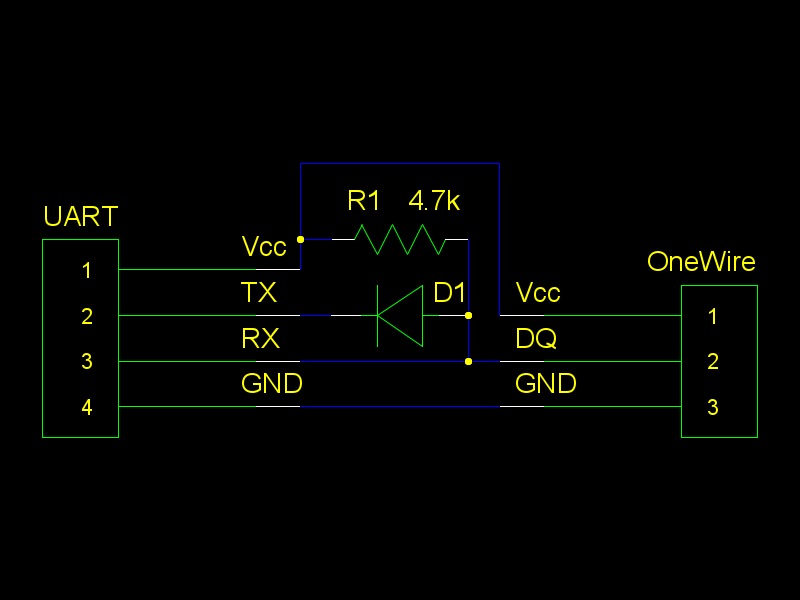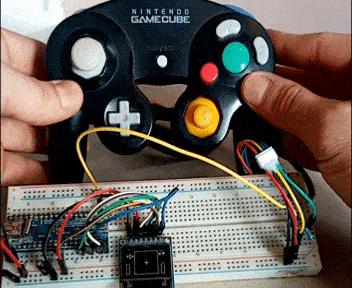Library for reading Nintendo game controllers on Arduino boards, targeted at STM32F1/Maple Mini boards.
Based on the work published by qwertymodo (http://www.qwertymodo.com/hardware-projects/n64/n64-controller), this alternate driver uses a serial port, a diode and a resistor to emulate the controllers' JoyBus protocol using a hacked serial port.
(Ab)uses Serial Port to emulate the OneWire-like protocol of JoyBus.
In order to wire this up, we need to tie the UART's Rx and Tx pins together using a Schottky diode, as shown here (https://github.com/dword1511/onewire-over-uart).

Any Arduino compatible MCU with fast enough serial should work with this library, Hardware required/used is a serial port capable of 1250000 bps baud-rate. That does not include the AVR line of Arduinos, sadly.
Interrupts aren't blocked or used.
Low level bit bang protocol forked from GameControllersSTM32 (https://github.com/arpruss/GameControllersSTM32).
Stops interrupts for the duration of the protocol data exchange (~200us for N64, ~400us for GC).
Only used as a fallback solution where serial isn't available.
- Nintendo 64
- GameCube
SerialJoyN64Controller Controller(&Serial3); (JoyBusOverSerial Version)
BitBangN64Controller Controller(CONTROLLER_PIN); (BitBang Version)
Controller.Poll(); (Request data poll)
delay(1) (MCU can do other things while the serial port fills up with the response)
bool Controller.Read(); (Returns true on poll success, tries to reconnect controller on fail)
Controller.Data //(N64Data_t); (Raw controller data is public)
